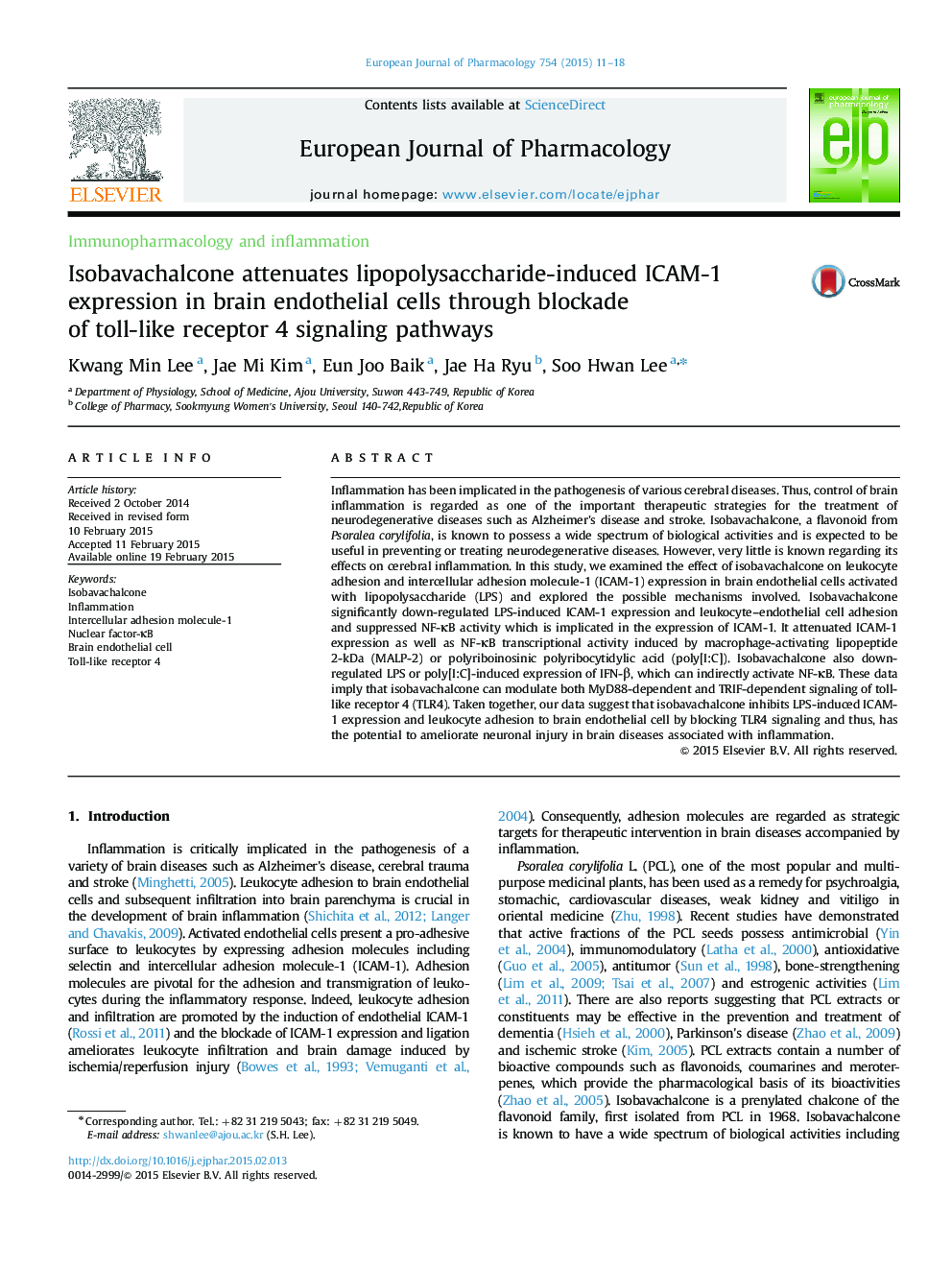| Article ID | Journal | Published Year | Pages | File Type |
|---|---|---|---|---|
| 5827435 | European Journal of Pharmacology | 2015 | 8 Pages |
Abstract
Inflammation has been implicated in the pathogenesis of various cerebral diseases. Thus, control of brain inflammation is regarded as one of the important therapeutic strategies for the treatment of neurodegenerative diseases such as Alzheimer׳s disease and stroke. Isobavachalcone, a flavonoid from Psoralea corylifolia, is known to possess a wide spectrum of biological activities and is expected to be useful in preventing or treating neurodegenerative diseases. However, very little is known regarding its effects on cerebral inflammation. In this study, we examined the effect of isobavachalcone on leukocyte adhesion and intercellular adhesion molecule-1 (ICAM-1) expression in brain endothelial cells activated with lipopolysaccharide (LPS) and explored the possible mechanisms involved. Isobavachalcone significantly down-regulated LPS-induced ICAM-1 expression and leukocyte-endothelial cell adhesion and suppressed NF-κB activity which is implicated in the expression of ICAM-1. It attenuated ICAM-1 expression as well as NF-κB transcriptional activity induced by macrophage-activating lipopeptide 2-kDa (MALP-2) or polyriboinosinic polyribocytidylic acid (poly[I:C]). Isobavachalcone also down-regulated LPS or poly[I:C]-induced expression of IFN-β, which can indirectly activate NF-κB. These data imply that isobavachalcone can modulate both MyD88-dependent and TRIF-dependent signaling of toll-like receptor 4 (TLR4). Taken together, our data suggest that isobavachalcone inhibits LPS-induced ICAM-1 expression and leukocyte adhesion to brain endothelial cell by blocking TLR4 signaling and thus, has the potential to ameliorate neuronal injury in brain diseases associated with inflammation.
Keywords
Related Topics
Life Sciences
Neuroscience
Cellular and Molecular Neuroscience
Authors
Kwang Min Lee, Jae Mi Kim, Eun Joo Baik, Jae Ha Ryu, Soo Hwan Lee,
